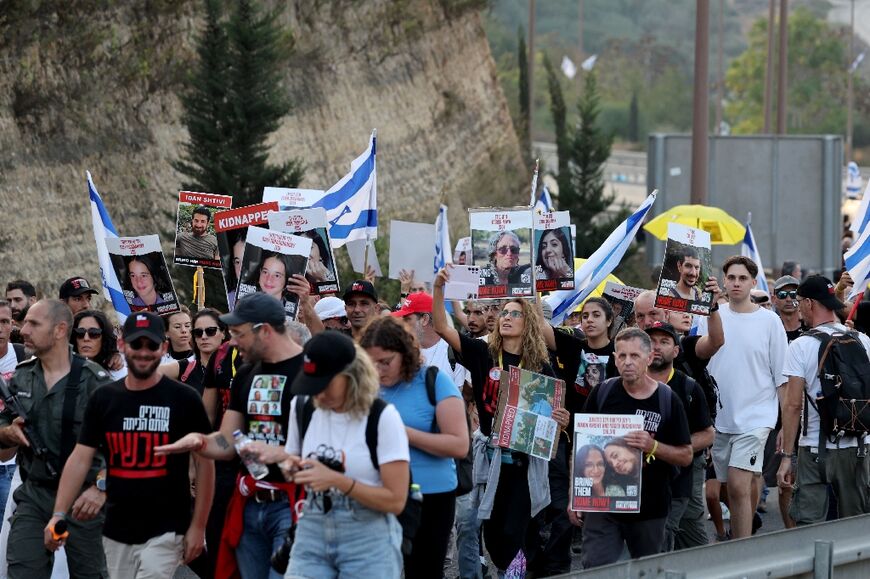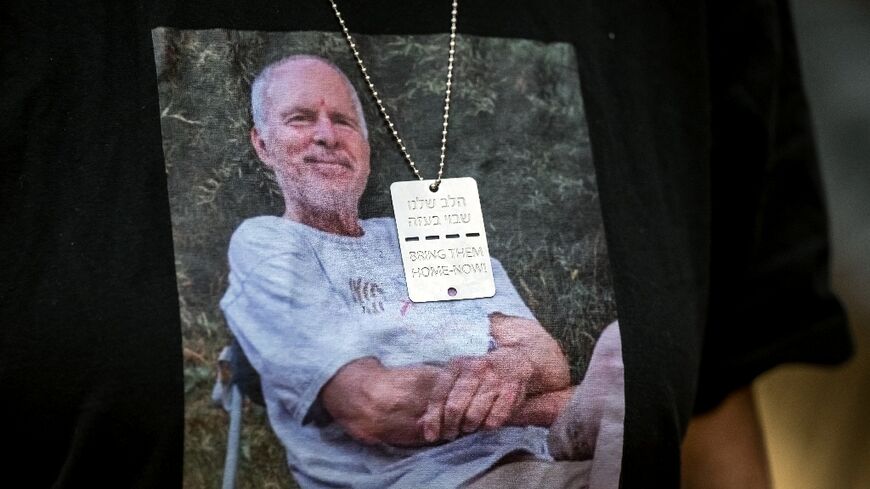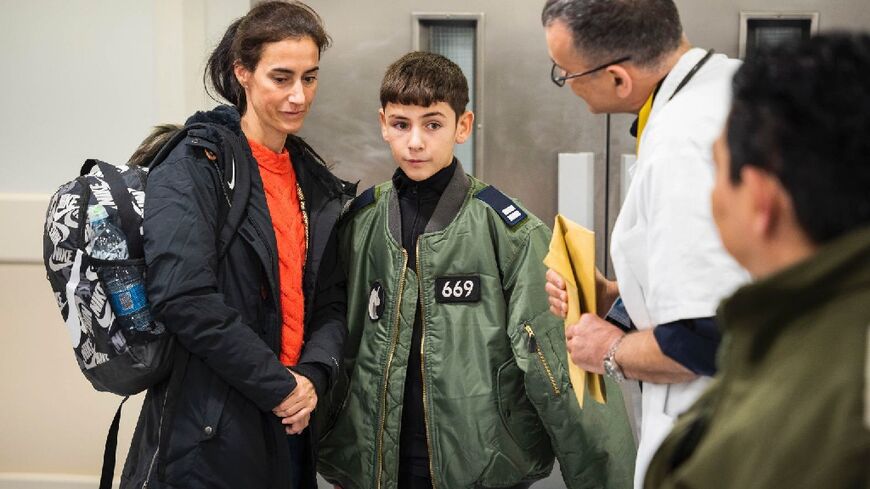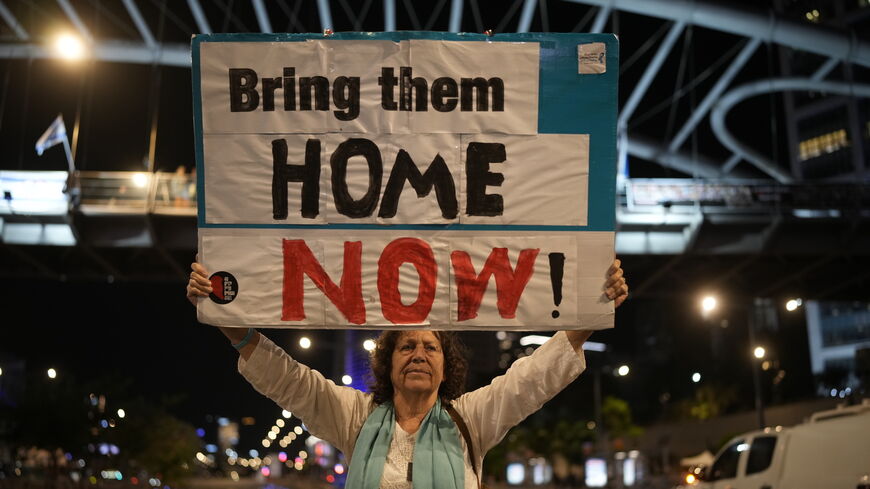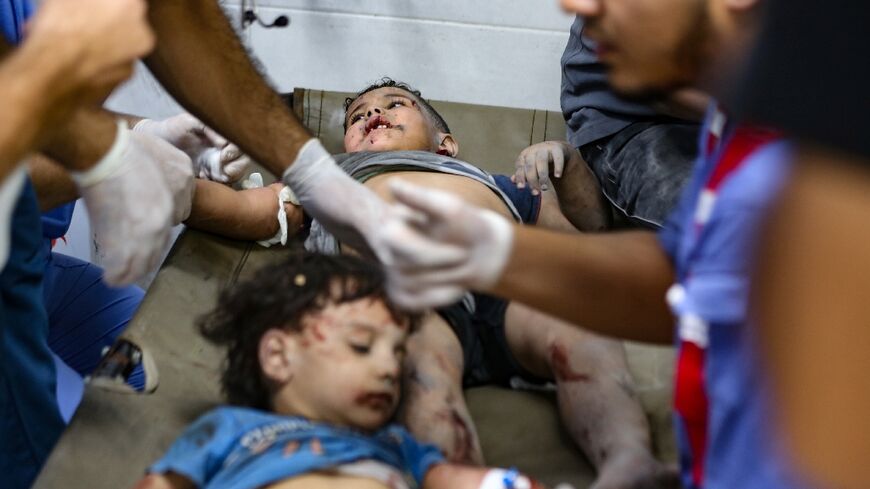'Bring them home': marching for days, families of Gaza hostages reach Jerusalem
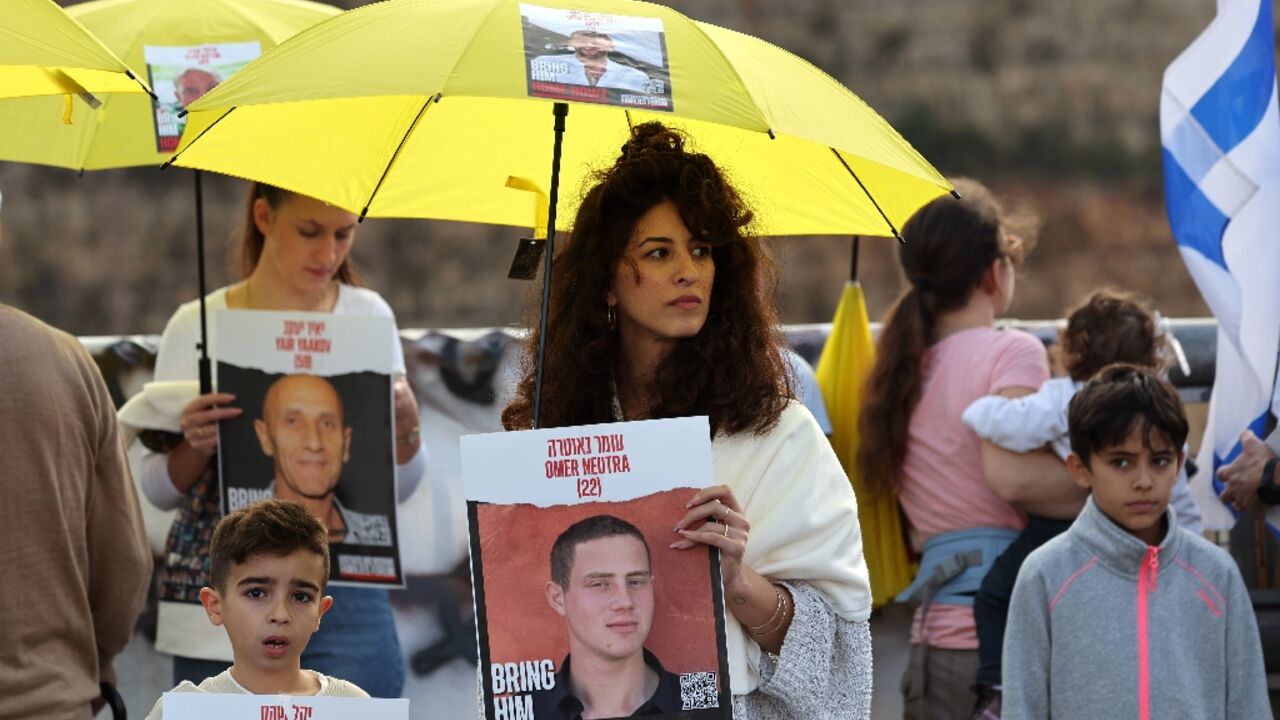
Clutching photos of their missing loved ones, hundreds of relatives of hostages snatched into Gaza on October 7 marched into Jerusalem on Saturday to demand answers from the Israeli government.
The families, their faces etched with exhaustion and stress, were joined by thousands of supporters on the march which set out Tuesday from the coastal city of Tel Aviv, urging action to bring to the release of captives.
Since Hamas militants surged out of Gaza six weeks ago and, according to Israeli officials, seized some 240 hostages, their families and friends have waged a determined publicity campaign to secure their freedom.
"Bring them home now!" the marchers chanted as they walked into Jerusalem, the seat of the Israeli government, many carrying placards with the faces of the kidnapped.
One of the posters read: "Mum we're waiting for you. Come back."
Many were draped in blue-and-white Israeli flags as they walked the final stretch to Prime Minister Benjamin Netanyahu's office.
The march was organised by Yuval Haran, whose father was killed and mother kidnapped to Gaza along with six other family members.
Earlier this week, the Israeli army confirmed finding the bodies of two hostages inside the bombarded Palestinian territory.
"We can't lose any more people," Haran told the marchers.
Relatives, who quickly formed the Hostages and Missing Families Forum in the wake of the attacks, have consistently criticised the government for failing to keep them informed, and say release efforts should be an absolute priority of Israel's military campaign.
- 'How can we sleep?' -
As they approached Netanyahu's office, they stopped briefly to release hundreds of yellow helium balloons into the sky, many supporters in tears as they gazed into the sky.
"I want the government to bring them home to us," said Dvora Cohen, 43, whose brother-in-law and 12-year-old nephew and are both believed held in Gaza.
"I want the world to help us, I want the Red Cross to do its job, to go into Gaza and see if they are alive, see what they need, if they are getting medical help," she told AFP.
So far, the Red Cross has not been able to meet with any of the hostages, Israel's top diplomat Eli Cohen said this week, and the families say they have had no news from the Israeli government about negotiations to secure their release.
"We want answers," said Ari Levi, 68, who had two family members taken by Palestinian militants from Nir Oz, a kibbutz community near the Gaza border: his cousin Ohad, 49, and Ohad's 12-year-old son Eitan.
Eitan was seen in social media footage from the day of the attack thrown onto the back of a motorbike and driven away by militants.
"It's not normal to have children kidnapped for 43 days. We don't know what the government is doing, we don't have any information," Levi told AFP.
He said rumours which started circulating in recent days that the army had found more bodies in Gaza have sent anxiety levels through the roof.
"As soon as there's a rumour like that –- how can we sleep? We don't know anything. Nobody (from the government) has spoken to us. They say: 'Yes we're with you', but they don't give us any information," he said.
- 'Do something' -
The war began when Hamas militants stormed into southern Israel, killing 1,200 people, mostly civilians, Israeli officials say, and kidnapping around 240 others including Israelis and foreigners, women, children and elderly people.
Israel hit back with massive military assault which the Hamas-run government says has killed 12,300 people in Gaza, mostly civilians.
Four of the hostages have been freed so far by Hamas and another, a soldier, was rescued in an Israeli operation.
Diplomatic sources this week said Qatar-mediated negotiations were under way to free some of the hostages in exchange for Palestinian prisoners held by Israel and a temporary ceasefire.
But the talks have so far yielded no result, and the families say they have no idea what is being discussed.
"We want our government to make every effort to make a deal, to release first the children, to do something," said Levi, his words echoed by many in the crowd.
Michal, 48, who joined part of the march and did not want to give her surname, said: "As a mother, I'd say if my son or my daughter was there, even for two minutes, I would literally stop at nothing to bring them home."
